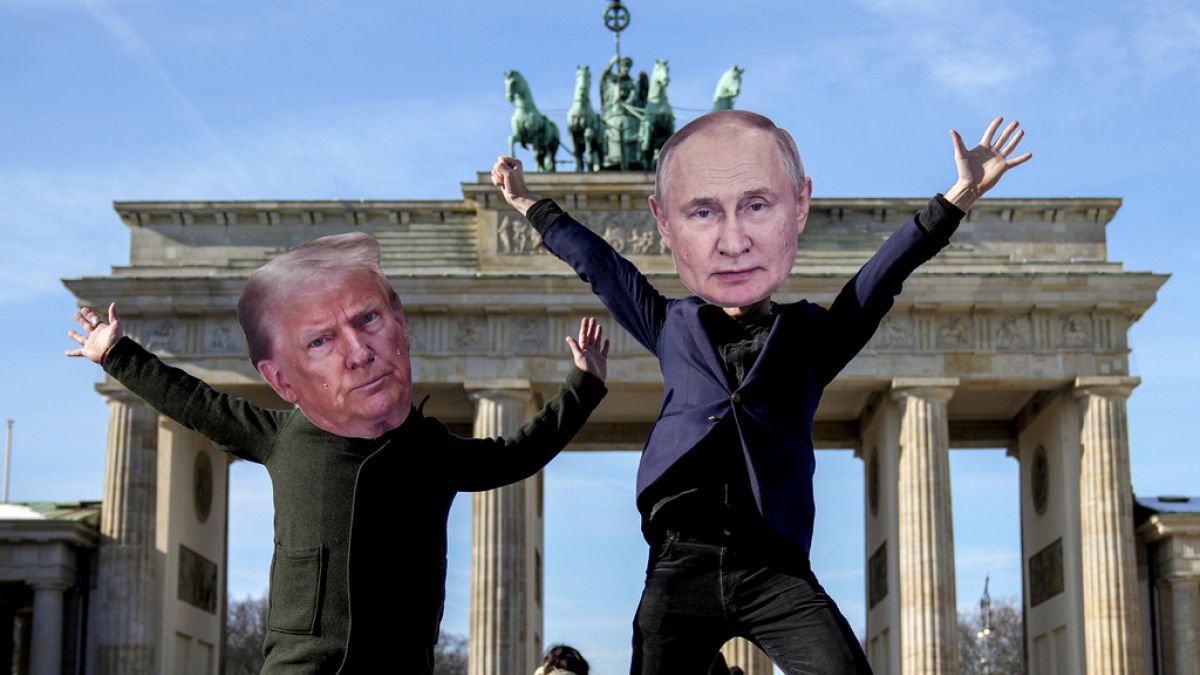Europe
Ukraine war dominates lastchancellor candidates’ debate ahead of vote

Germany’s Federal Election Debate: A Clash of Visions on War, Security, and the Future
The stage was set for a heated final debate ahead of Germany’s federal elections, as top politicians and chancellor candidates gathered on local broadcaster ZDF to address the nation. With the war in Ukraine, economic challenges, and immigration dominating the agenda, the debate underscored the deep divisions among the candidates on how to navigate Germany’s future. Moderators wasted no time in confronting the contenders with the most pressing issue: the threat of war and continental security. A recent survey revealed that 45% of Germans consider peace and security their top priority heading into the elections, and the debate reflected this anxiety. The war in Ukraine loomed large, with candidates clashing over Germany’s role in the conflict, its alliances, and the broader implications for European stability.
Security and Alliances: A Focus on Europe’s Strength and Unity
The debate kicked off with a stark warning from German Foreign Minister Annalena Baerbock of the Greens, who highlighted the growing threat of war in recent days. Baerbock pointed to strained relations with long-time European allies following the inauguration of US President Donald Trump, whose push to end the war in Ukraine “at any cost” has left many European leaders questioning Washington’s reliability. “So far, we have been strongly supported by the Americans, and if that is no longer the case, then we Europeans must secure our own peace even more strongly,” Baerbock declared. She emphasized the need for European unity and strength to counter the shifting geopolitical landscape.
Matthias Miersch, Secretary General of the Social Democratic Party (SPD), echoed Baerbock’s concerns, arguing that while the German government is not unprepared, the critical question remains whether Europe is capable of defending itself. “This is also a question of financing,” Miersch said, pointing to the need for greater investment in defense and the potential reform of Germany’s debt brake as key issues for the future. Christian Democratic Union (CDU) Secretary General Carsten Linnemann took a firmer stance, accusing the current government of isolation and a lack of leadership. “Next week, Macron and Starmer are flying to Trump; we as Germany have to take on a leadership role again,” Linnemann asserted, calling for a stronger, more unified Europe. “Not from the top down, but with France, Poland, and a strong European Union,” he added, emphasizing the need to prioritize defense capabilities.
Economic Strength and Geopolitical Power: A Path to Stability
The debate also delved into the economic dimensions of security, with Free Democratic Party (FDP) leader Christian Lindner arguing that Germany’s geopolitical strength has historically been rooted in its economic prowess. “The time for moral appeals and feminist foreign policy is over,” Lindner declared, criticizing the current government for failing in its core tasks, including security, education, and infrastructure. He called for a hardline stance and greater economic strength to counter the power politics being played by China, Russia, and the US. “We have to arm ourselves,” Lindner said, emphasizing the need for a strong, rules-based international order and multilateralism.
Lindner’s comments were countered by Alexander Dobrindt of the Christian Social Union (CSU), who warned of a potential security vacuum in Europe as the US repositions itself. “The crucial question is whether we will fill this security vacuum or Putin,” Dobrindt said, urging Germany and Europe to step up and take responsibility. The debate also saw tensions rise over the role of NATO, with Jan van Aken of The Left (DL) party arguing that the alliance is not a community of values and that Europe should prioritize its own security architecture. “We must think security in European terms; it is wrong to focus unilaterally on weapons and NATO,” van Aken said, sparking disagreement from Lindner, who insisted that the EU needs the nuclear deterrent of the US and NATO.
The Far-Right’s Call for Neutrality: A Divisive Stance
One of the most contentious moments of the debate came when far-right Alternative for Germany (AfD) leader Alice Weidel took the stage. Weidel, whose party is currently polling at 20%, argued that the threat of war has grown significantly in recent weeks and called for Germany to adopt a neutral stance in the conflict. “We have to put the brakes on this issue because the danger of escalation is still there,” Weidel said, criticizing the government for continuing to send weapons to Ukraine. She also reiterated her party’s support for Trump and his efforts to end the war, a position that drew sharp criticism from other candidates.
Baerbock and Linnemann were quick to challenge Weidel, with Baerbock accusing her and Sahra Wagenknecht, leader of Germany’s Alliance Sahra Wagenknecht (BSW), of never having visited Ukraine or seen the suffering caused by Putin’s attacks. “It was never right to see this war in black and white,” Weidel shot back, arguing that the war has a complex history that cannot be ignored. She repeated her call for peace negotiations, a stance that has been met with resistance from the current government. The exchange highlighted the deep divisions within Germany over how to approach the conflict, with some advocating for a harder line against Russia and others pushing for diplomacy.
Conclusion: A Nation at a Crossroads
As the debate came to a close, one thing was clear: Germany stands at a crossroads, with its future tied to the choices it makes on security, alliances, and economic strength. The war in Ukraine has exposed deep cracks in Europe’s unity and raised unsettling questions about the reliability of long-standing alliances. For the candidates, the debate was not just about winning votes but also about articulating a vision for Germany’s role in a rapidly changing world. As voters head to the polls on Sunday, the outcome will not only shape the country’s direction but also have far-reaching implications for Europe and the global stage.